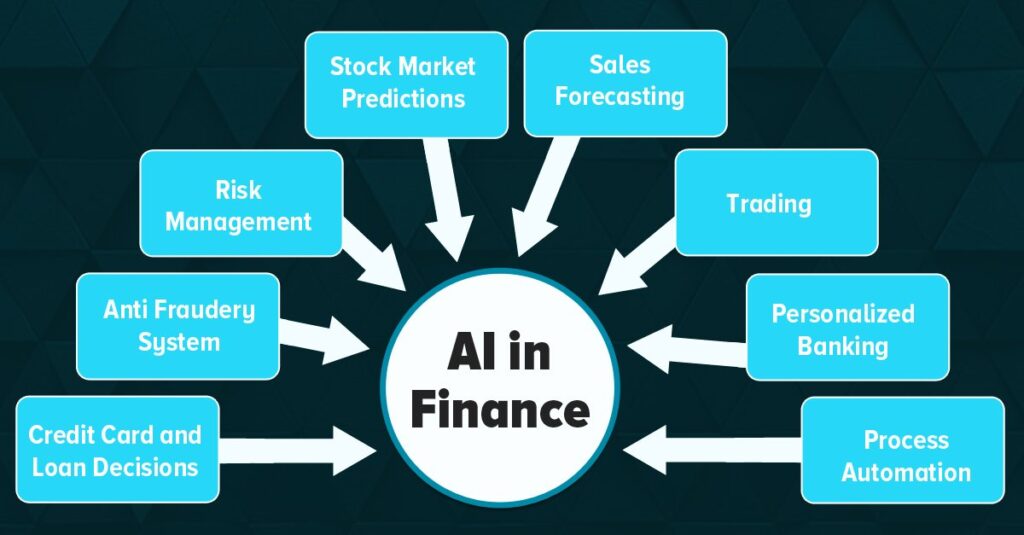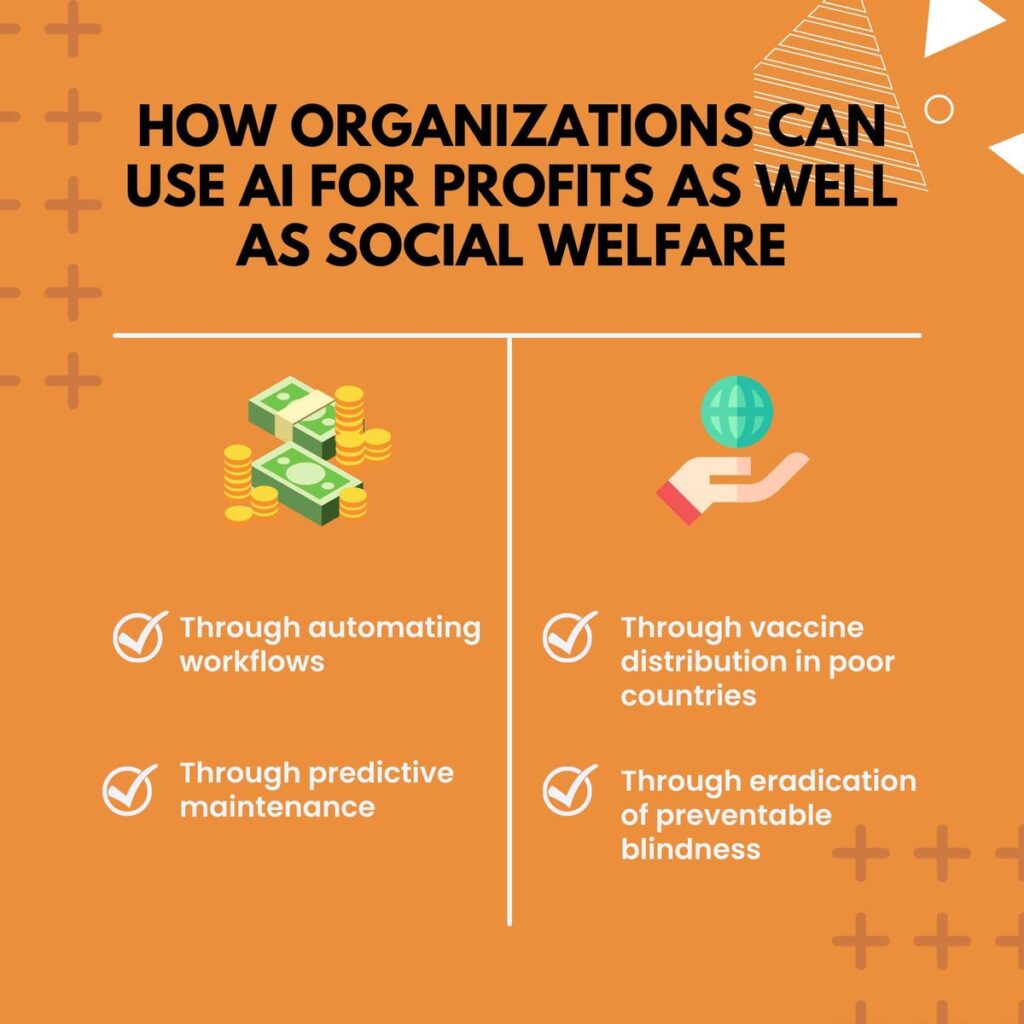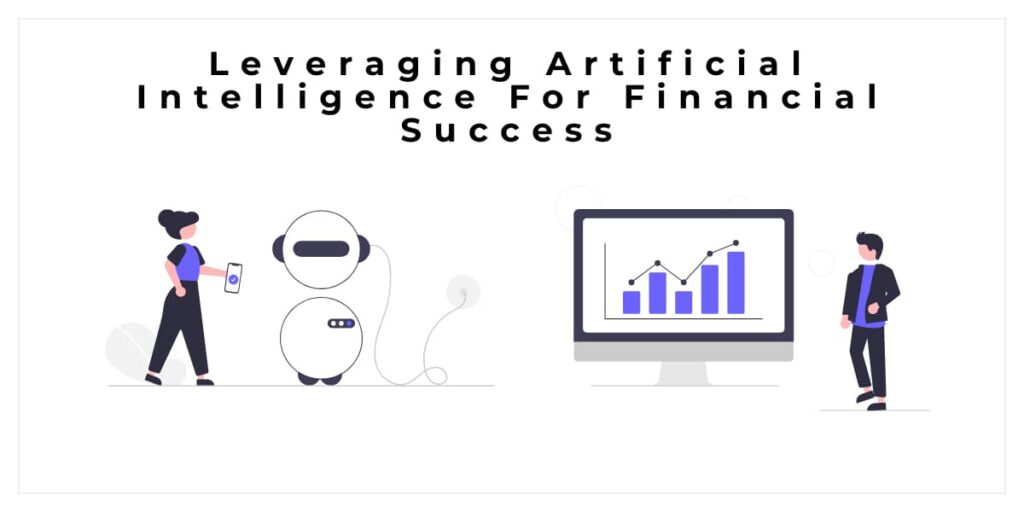Introduction
Understanding the concept of financial success
Welcome! Today, I want to dive into the fascinating world of profitable AI algorithms and how they can unlock financial success. As someone who has always been interested in financial markets and technology, I have come to realize the tremendous potential that artificial intelligence holds in the finance industry. It has completely revolutionized how we approach investing, trading, and managing our money.
The increasing influence of AI in the finance industry
Over the past few years, AI has made significant strides in the finance industry. From automated trading systems to robo-advisors, AI algorithms have become indispensable tools for investors and traders. These algorithms can analyze massive amounts of data, identify patterns, and make intelligent predictions, enabling investors to make more informed decisions.
By harnessing the power of AI, individuals can potentially unlock financial success and even generate passive income. Whether you are an experienced investor or just starting out, implementing profitable AI algorithms can provide a competitive edge in the market.
In this article, I will explore how AI algorithms can be leveraged to make money in the finance industry. We will discuss various strategies, tools, and platforms available to individuals interested in harnessing the power of AI to achieve their financial goals. So let’s dive in and explore the exciting world of profitable AI algorithms!

Importance of AI Algorithms in Finance
In today’s rapidly evolving world of finance, AI algorithms play a pivotal role in unlocking financial success. These powerful tools have revolutionized the way we make investment decisions and generate passive income. They enhance accuracy and efficiency in financial decision making, help identify lucrative opportunities through data analysis, reduce human error and bias, and improve risk management strategies.
Enhancing accuracy and efficiency in financial decision making
AI algorithms have the ability to process vast amounts of financial data at an incredible speed, allowing investors to make more informed decisions. By analyzing historical market trends and patterns, these algorithms can predict future market movements with a high degree of accuracy. This not only helps investors maximize their returns but also minimizes the chances of making costly mistakes.
Identifying lucrative opportunities through data analysis
AI algorithms excel at analyzing and interpreting complex financial data, uncovering hidden patterns and trends that can lead to profitable opportunities. By considering multiple factors, such as market conditions, company performance, and economic indicators, these algorithms can identify undervalued assets or potential market anomalies. This enables investors to proactively seize advantageous positions and generate substantial profits.
Reducing human error and bias
Human beings are prone to making errors and being influenced by emotions or biases. AI algorithms, on the other hand, can objectively analyze financial data without being swayed by emotions or external factors. This significantly reduces the risk of making irrational decisions based on subjective judgment and allows for a more objective and data-driven approach to investing.
Improving risk management strategies
Effective risk management is crucial for maintaining sustainable financial success. AI algorithms can effectively assess and manage risks by analyzing various parameters and indicators. By continuously monitoring market conditions and adapting to changing circumstances, these algorithms can identify potential risks and help investors develop appropriate risk mitigation strategies. This not only safeguards investments but also enhances overall portfolio performance.
AI algorithms have become indispensable in the finance industry, offering significant advantages in accuracy, efficiency, and risk management. By harnessing the power of these algorithms, investors can unlock financial success and create a pathway to long-term, profitable investments.

Key Features of Profitable AI Algorithms
As an AI enthusiast and financial professional, I have witnessed the incredible potential of profitable AI algorithms in the finance industry. These algorithms are revolutionizing the way we approach investing and generating passive income. In this post, I will discuss the key features that make these algorithms so effective in unlocking financial success.
Machine Learning Capabilities for Adaptive Learning
One of the most powerful aspects of profitable AI algorithms is their ability to continuously learn and adapt. By utilizing machine learning techniques, these algorithms can analyze vast amounts of financial data, identify patterns, and adjust their strategies accordingly. This adaptability allows them to navigate changing market conditions and make precise investment decisions.
Effective Pattern Recognition for Predictive Analysis
Profitable AI algorithms excel in their pattern recognition capabilities. They can identify trends, correlations, and anomalies within financial data, enabling them to provide accurate predictions and identify profitable investment opportunities. This insightful analysis gives investors a competitive edge by helping them make informed decisions based on historical patterns and market behavior.
Ability to Process Large and Complex Financial Data
In the finance industry, data is king. Profitable AI algorithms have the exceptional ability to process massive amounts of complex financial data quickly and accurately. This capability allows them to analyze a broad range of variables, including market trends, economic indicators, and company financials. By considering multiple factors simultaneously, these algorithms generate comprehensive insights that can guide investment strategies effectively.
Real-Time Monitoring and Adjustments
Another crucial feature of profitable AI algorithms is their real-time monitoring and adjustment capabilities. These algorithms constantly monitor market conditions, news, and events that may impact investments. They dynamically adjust their strategies in response to changing circumstances, ensuring optimal performance and reducing the risk of financial losses.
Integration of Advanced Mathematical Models
Profitable AI algorithms leverage advanced mathematical models to analyze and predict financial outcomes. By integrating these models into their decision-making processes, algorithms can identify complex mathematical relationships that may not be evident to human investors. This mathematical approach enhances the accuracy and precision of the algorithms’ predictions, leading to higher profitability and financial success.
profitable AI algorithms possess remarkable features that make them invaluable tools for achieving financial success. Their adaptive learning capabilities, effective pattern recognition, ability to process large and complex financial data, real-time monitoring and adjustments, and integration of advanced mathematical models provide investors with a powerful advantage. By harnessing the potential of these algorithms, individuals can unlock new opportunities for generating passive income and investing in the ever-evolving financial landscape.

Applications of Profitable AI Algorithms in Finance
Artificial Intelligence (AI) algorithms have revolutionized the world of finance, offering individuals and businesses a myriad of opportunities to unlock financial success. Through the implementation of profitable AI algorithms, it is now possible to leverage the power of automation and predictive modeling to generate substantial returns and create a reliable source of passive income. In this post, I will explore some key applications where profitable AI algorithms have made a significant impact in the financial industry.
Automated Trading Systems
AI algorithms have transformed the way trading is done by enabling automated trading systems. These algorithms can analyze vast amounts of financial data in real-time, identify patterns and trends, and execute trades accordingly. By removing human emotions and biases from trading decisions, automated trading systems have the potential to generate consistent profits and minimize risks.
Optimizing Investment Portfolios
AI algorithms can analyze historical data, market trends, and risk metrics to optimize investment portfolios. By considering multiple variables simultaneously, algorithms can identify the most suitable asset allocation strategy, ensuring a well-diversified portfolio that maximizes returns while minimizing risks.
Credit Scoring and Fraud Detection
AI algorithms are also used in credit scoring and fraud detection. By analyzing various data points such as credit history, income, and spending patterns, algorithms can accurately assess an individual’s creditworthiness and predict the likelihood of default. Furthermore, these algorithms can identify fraudulent activities by analyzing transaction patterns and anomalies in real-time, reducing financial losses for businesses and individuals.
Algorithmic Risk Assessment
Profitable AI algorithms are instrumental in assessing and managing risks. By analyzing historical data, market volatility, and external factors, algorithms can determine the probability of various risks occurring. This enables businesses and investors to make informed decisions, develop risk mitigation strategies, and protect their assets.
Predictive Pricing Models
AI algorithms can forecast future prices of stocks, commodities, and other financial assets with remarkable accuracy. By analyzing historical data, market trends, and various external factors, these algorithms can create predictive pricing models. Investors can leverage these models to make informed decisions and identify profitable opportunities in the market.
profitable AI algorithms have transformed the financial landscape by revolutionizing trading systems, optimizing investment portfolios, improving credit scoring and fraud detection, providing algorithmic risk assessments, and creating predictive pricing models. When harnessed effectively, these algorithms offer individuals and businesses the potential to unlock financial success and generate passive income in the ever-evolving world of finance.

AI Algorithm Development Process
In this section, I will walk you through the various steps involved in the AI algorithm development process for unlocking financial success. Building profitable AI algorithms in finance requires a systematic approach and a deep understanding of the underlying data and financial markets.
Data collection and preprocessing
The first step in developing a profitable AI algorithm is to collect and preprocess the necessary data. This involves gathering historical financial data from various sources, such as stock prices, economic indicators, and news sentiment. Once the data is collected, it needs to be cleaned and preprocessed to remove any outliers, missing values, or inconsistencies.
Algorithm design and training
Once the data is ready, the next step is to design and train the AI algorithm. This involves selecting appropriate machine learning models and techniques that can effectively uncover patterns and trends in the financial data. The algorithm is then trained using historical data, allowing it to learn from past experiences and make predictions about future market behavior.
Testing and evaluation
After the algorithm is trained, it is important to thoroughly test and evaluate its performance. This involves dividing the data into training and testing sets and measuring how well the algorithm predicts market movements on unseen data. This step helps to ensure that the algorithm is robust and capable of generating accurate predictions on real-time data.
Continuous optimization and improvement
Finally, the AI algorithm needs to be continuously optimized and improved to adapt to changing market conditions. This involves monitoring its performance, identifying areas for improvement, and making necessary adjustments to enhance its predictive accuracy. By continuously refining the algorithm, you can increase its profitability and ensure long-term financial success.
By following this AI algorithm development process, you can unlock financial success and potentially create passive income streams. The key lies in carefully collecting and preprocessing data, designing and training effective algorithms, thoroughly testing and evaluating their performance, and continuously optimizing and improving them. So, why not leverage the power of AI and start your journey towards financial success today?

Implementing Profitable AI Algorithms
Profitable AI algorithms have the potential to unlock significant financial success and create passive income streams. However, implementing these algorithms requires a strategic approach and collaboration with financial experts and data scientists.
Collaborating with financial experts and data scientists
Working alongside knowledgeable financial experts and experienced data scientists plays a crucial role in implementing profitable AI algorithms. By combining their expertise, we can leverage their deep understanding of the financial markets and their ability to extract insights from vast amounts of data. This collaboration ensures that the algorithms are designed to generate accurate predictions and identify profitable opportunities.
Developing robust infrastructure for algorithm implementation
Creating a strong and reliable infrastructure is essential to successfully implementing profitable AI algorithms. This involves leveraging advanced technology and scalable systems that can handle large volumes of data. It is crucial to invest in robust hardware and software resources that can support the computational demands required for accurate algorithmic predictions.
Compliance with regulatory frameworks
Complying with regulatory frameworks is a critical aspect of implementing profitable AI algorithms in finance. Adhering to regulations ensures that our algorithms operate within legal boundaries, protecting both the investors and the integrity of the financial markets. Engaging legal experts and staying up-to-date with evolving regulations is vital for successful implementation.
Monitoring and fine-tuning algorithm performance
Constant monitoring and fine-tuning are necessary to ensure the long-term profitability of AI algorithms. Regular evaluation of algorithm performance allows for necessary adjustments to be made, optimizing their effectiveness. By closely monitoring the algorithms, we can identify any potential weaknesses or areas for improvement, thereby enhancing their predictive accuracy.
By collaborating with experts, developing robust infrastructure, complying with regulatory frameworks, and continuously monitoring algorithm performance, we can successfully implement profitable AI algorithms in finance, unlocking financial success and passive income opportunities.
Challenges and Risks in AI Algorithm Usage
As profitable as AI algorithms can be in the realm of finance, their usage is not without challenges and risks. It is important to acknowledge and address these concerns to ensure the responsible and ethical deployment of AI technologies.
Ethical Considerations and Potential Bias
One major challenge is the ethical dimension of AI algorithm usage. Unconscious biases in data can lead to biased decision-making, which can have significant social and economic consequences. As developers, it is crucial for me to carefully curate and handle the data used to train these algorithms, to mitigate biased outcomes. Additionally, ongoing monitoring and fairness assessments are necessary to ensure that AI systems are not perpetuating discriminatory practices.
Lack of Interpretability and Transparency
Another challenge is the lack of interpretability and transparency inherent in some AI algorithms. Complex machine learning models can be difficult to interpret, making it challenging to gain insights into their decision-making process. It is essential for me to address this by developing algorithms that are not only accurate but also explainable, allowing users to understand the rationale behind the system’s recommendations and decisions.
Data Security and Privacy Concerns
The use of AI algorithms in finance heavily relies on vast amounts of sensitive and personal data. This raises legitimate concerns related to data security and privacy. I must prioritize robust security measures to protect data from unauthorized access or breaches. Furthermore, stringent privacy policies and adherence to regulatory frameworks must be in place to safeguard the confidentiality of individuals’ information.
Market Volatility and Unpredictable Events
Financial markets are inherently volatile and subject to unpredictable events. AI algorithms designed to navigate these markets must be able to adapt and respond to changing conditions. While AI can offer valuable insights and predict market trends, it is important to acknowledge the limitations of algorithmic prediction and take into account the unpredictable factors that can influence market dynamics.
By recognizing and addressing these challenges and risks, we can unlock the full potential of profitable AI algorithms in finance, while ensuring their responsible and ethical usage. Through continuous efforts to improve interpretability, fairness, data security, and adaptability, we can leverage AI technologies to achieve financial success and passive income.
Conclusion
In conclusion, profitable AI algorithms have become a game-changer in the field of finance. By applying cutting-edge technology, individuals can unlock their financial success and tap into the vast opportunities that AI has to offer.
Unleashing the potential of profitable AI algorithms
AI algorithms have the ability to analyze mountains of data, identify patterns, and make accurate predictions. This can be particularly advantageous in the world of finance, where making informed decisions is crucial. By utilizing profitable AI algorithms, individuals can gain a competitive edge in the market and increase their chances of achieving financial success.
Embracing technology for financial success
To fully leverage the power of AI algorithms, it is essential to embrace technology and stay updated with the latest advancements. This may involve learning about different AI models, understanding programming languages, and staying informed about market trends. By investing time and effort into mastering AI technology, individuals can position themselves for financial success and potentially create a passive income stream.
In conclusion, profitable AI algorithms have revolutionized the finance industry, offering individuals the opportunity to make smart investment decisions and unlock their financial potential. By embracing technology and staying ahead of the curve, individuals can harness the power of AI and pave their way towards long-term financial success.
